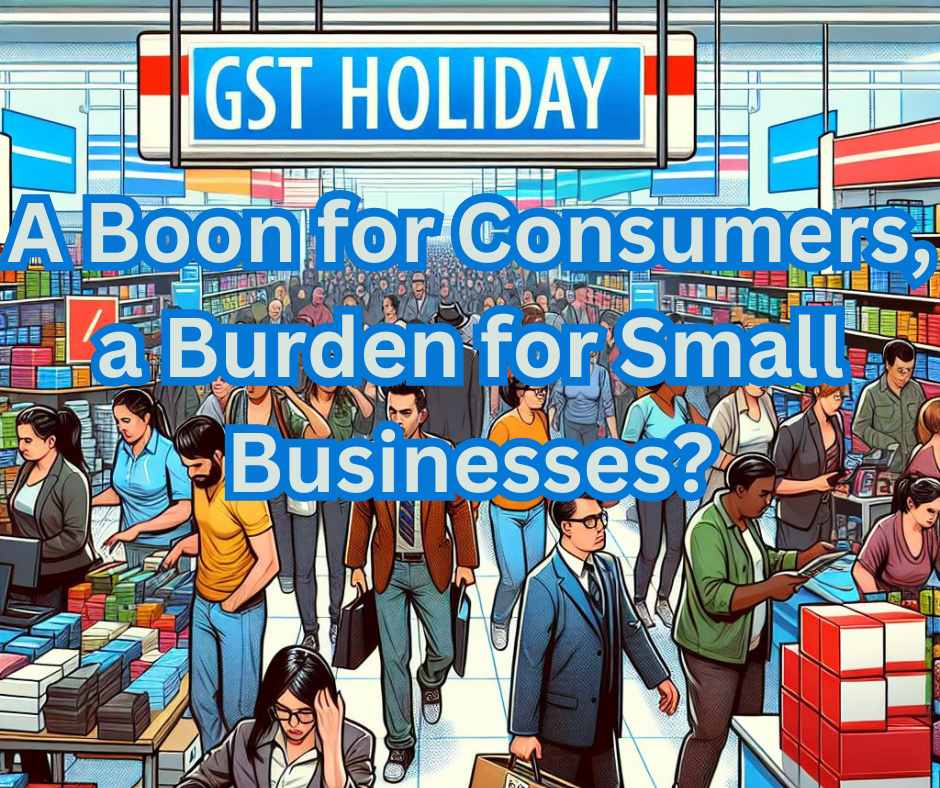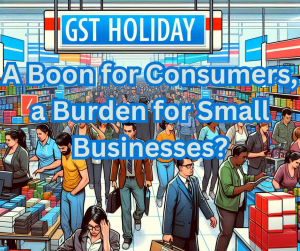
The GST Holiday: A Boon for Consumers, a Burden for Small Businesses?
The recent announcement of a two-month GST holiday in Canada, starting from December 14, 2024, to February 15, 2025, has been met with enthusiasm by consumers. This initiative aims to provide financial relief by exempting certain goods and services from GST, including groceries, restaurant meals, children's clothing, and toys[1][2]. While this move is undoubtedly beneficial for consumers, it presents significant challenges for small businesses.
Consumer Benefits
For consumers, the GST holiday means more money in their pockets during the holiday season. Families can save on essential and non-essential items, making it easier to manage holiday expenses. This relief is particularly timely, given the current economic pressures many households face.
Challenges for Small Businesses
However, the GST holiday introduces a layer of complexity for small businesses, particularly those without advanced payment processing systems. Here are some of the key challenges:
- System Updates and Integration: Small businesses must update their point-of-sale (POS) systems to correctly apply the GST exemption to eligible items. This process can be straightforward for some but laborious for others, especially those with extensive inventories[3].
- Identifying Eligible Items: Businesses need to meticulously review their product lists to identify which items qualify for the GST exemption. This task can be time-consuming and prone to errors, particularly for businesses with a wide range of products[3].
- Training and Implementation: Staff must be trained to understand and implement the changes. This includes recognizing which items are exempt and ensuring the correct application of the GST holiday at checkout[3].
- Reversing Changes: After the GST holiday ends, businesses will need to revert their systems to the standard GST application. This adds another layer of administrative work and potential for errors[3].
- Payment Processing Fees: Small businesses already face high transaction fees and complex fee structures for payment processing[1]. The additional burden of adjusting systems for the GST holiday can exacerbate these challenges.
Balancing the Benefits and Burdens
While the GST holiday is a welcome relief for consumers, it is essential to acknowledge the operational burdens it places on small businesses. Policymakers should consider providing support to these businesses, such as technical assistance or temporary financial relief, to help them navigate these changes.
In conclusion, the GST holiday is a well-intentioned initiative that offers significant benefits to consumers. However, it also highlights the need for a more streamlined approach to implementing such policies, ensuring that small businesses are not disproportionately affected by the administrative burdens they create.
References

